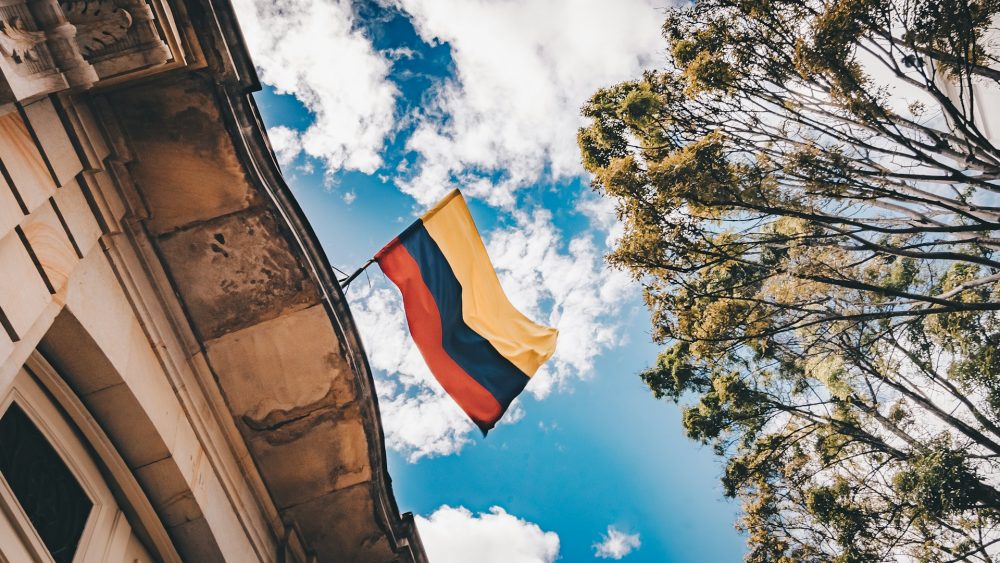Cannabis
Bolivian government might legalize medical cannabis
The cultivation, sale or possession of cannabis for medical purposes is currently illegal in Bolivia. The attitude towards cannabis is quite relaxed and people in the country consume it, but technically, its possession is illegal and can be punished. The Bolivian government decided to legalize cannabis for medical purposes and has been working on this law for some time.

It was reported that there are experts in Bolivia working with cannabis oil to relieve pain and treat diseases such as glaucoma and Alzheimer’s disease. The secretary of the House of Representatives’ Anti-Narcotics Committee, Brígida Quiroga, reported that there is a draft bill to legalize cannabis for medical purposes. The initiative was brought to a standstill due to the 2019 post-election conflicts and the change of government.
The latest CBD & Cannabis updates are now at your fingertips, with notifications and fresh information offered by our companion, the CBD News App. Stay up-to-date with marijuana stocks for investments, global market, cannabis legalization and more. CBD News is a mobile app that focuses exclusively on CBD. It brings you the very latest news in the CBD industry.
Medical cannabis law in Bolivia
“The Bolivian government has been working on medical cannabis law. The country already has a draft that has been worked on with some social organizations that are using this component as medicine,” explained the legislator in an interview.
His colleague and member of the same committee, Remberto Calani, said that there is a trend to legalize cannabis worldwide because of the health benefits and the use it can be given for the treatment of some diseases. “The Bolivian government believes that it will benefit the population in terms of health because cannabis as medicine is already used in other countries such as Uruguay and Argentina.”
However, Calani clarified that before promoting any regulation, a study should be carried out to define which sectors would benefit from such legalization. “Bolivia cannot move away from the reality of what is happening in neighboring countries. It’s not possible to prevent people from benefiting from this.”
Cannabis laws in different countries
According to reports from the United Nations, cannabis was legalized in several countries. In some, the legalization was made for medical purposes only, as in Denmark, Australia, India, United Kingdom, Israel, and Croatia, among others.
In America, cannabis was legalized for both medical or recreational purposes, as is the case in Canada, in some US states, Mexico, Colombia, Ecuador, Peru, Chile, Argentina, Uruguay, Paraguay, and Brazil. Ms. Quiroga indicated that she attended the 63rd session of the Commission on Narcotic Drugs organized by the United Nations in Vienna. At that meeting, the change in the legislation of the countries regarding cannabis was discussed.
The draft bill, the legislator added, was shared with specialists who are already working on the use of cannabis oil to alleviate ailments. “In Bolivia, there are already cases of people who have been treated with this oil and who have benefited greatly. There are cases in Cochabamba and here in La Paz.” said the legislator.
The new anti-drug law, passed in 2017, opened the possibility for the legalization of cannabis for medical purposes. That article only empowers “laboratories and chemical-pharmaceutical industries” to manufacture drugs with certain controlled substances.
Medical cannabis to open doors to recreational use or not?
Law 913 provides for the medical use of cannabis in Schedule 1 of the Single Convention on Narcotic Drugs. It was expected that regulations would soon be prepared to comply with that article. The public fears that legalizing cannabis for medical purposes will open doors to recreational use. However, if regulation is properly carried out, recreational use should not be feared.
__
(Featured image by Kimzy Nanney via Unsplash)
DISCLAIMER: This article was written by a third party contributor and does not reflect the opinion of Born2Invest, its management, staff or its associates. Please review our disclaimer for more information.
This article may include forward-looking statements. These forward-looking statements generally are identified by the words “believe,” “project,” “estimate,” “become,” “plan,” “will,” and similar expressions. These forward-looking statements involve known and unknown risks as well as uncertainties, including those discussed in the following cautionary statements and elsewhere in this article and on this site. Although the Company may believe that its expectations are based on reasonable assumptions, the actual results that the Company may achieve may differ materially from any forward-looking statements, which reflect the opinions of the management of the Company only as of the date hereof. Additionally, please make sure to read these important disclosures.
First published in Pagina SIETE, a third-party contributor translated and adapted the article from the original. In case of discrepancy, the original will prevail.
Although we made reasonable efforts to provide accurate translations, some parts may be incorrect. Born2Invest assumes no responsibility for errors, omissions or ambiguities in the translations provided on this website. Any person or entity relying on translated content does so at their own risk. Born2Invest is not responsible for losses caused by such reliance on the accuracy or reliability of translated information. If you wish to report an error or inaccuracy in the translation, we encourage you to contact us.

-

 Biotech7 days ago
Biotech7 days agoVytrus Biotech Marks Historic 2024 with Sustainability Milestones and 35% Revenue Growth
-

 Crowdfunding2 weeks ago
Crowdfunding2 weeks agoColombia Approves Terrenta’s Crowdfunding Platform for Real Estate Financing
-

 Crypto2 days ago
Crypto2 days agoRipple Launches EVM Sidechain to Boost XRP in DeFi
-

 Africa1 week ago
Africa1 week agoCôte d’Ivoire Unveils Ambitious Plan to Triple Oil Output and Double Gas Production by 2030
























